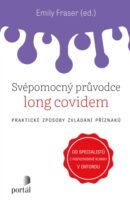Olga Klepackova, Jana Gabrielova, Martina Cerna, Milan Tomka
Olga Klepáčková is a master’s student at the Department of Social Work of the College of Polytechnics Jihlava, Czech Republic. Her research interests focus on social work during the Holocaust, psychosocial support of vulnerable individuals in health settings, and a traumainformed approach in social work.
Jana Gabrielova is an assistant professor at the Department of Social Work, The College of Polytechnics Jihlava. She focuses on social work with older adults and the connection between health and social issues.
Martina Černá works at the Department of Social Work of the College of Polytechnics Jihlava. She focuses on a trauma-informed approach and volunteering. She also works as a therapist.
Milan Tomka works at the Department of Social Work of the College of Polytechnics Jihlava. He focuses on supervision in social services and therapy for women experiencing intimate partner violence.
Abstract
OBJECTIVES: This paper reviews music as a significant part of the children’s care and social work in the Terezín ghetto during the Holocaust. THEORETICAL BASE: In the Terezín ghetto, concentration camp, and model ghetto with a specific role in Nazi propaganda, the Jewish self-government was able to create a sophisticated and efficient system providing care and support by the prisoners for the prisoners amid the most adverse conditions. While rich cultural life in this inhomogeneous, international community was thoroughly explored, the social work and care practice remained understudied. METHODS: Our historical research particularly aimed to investigate the use of musical activities within the children’s care system and social work practice in the ghetto and their benefits for the children. OUTCOMES: Findings demonstrate how engagement in various musical activities helped to fulfil the goals adults caring for the children strived to reach. They purposefully and creatively used them to help several thousand children, often severely traumatised, better cope and support their emotional and social wellbeing in this place with extreme conditions. SOCIAL WORK IMPLICATIONS: These experiences of Terezín’s prisoners affirmed some of the best benefits of engagement in musical activities in meeting the psychosocial needs of children facing adversities relevant even today and for contemporary social work practice.
Keywords
holocaust, Terezín ghetto, care system, social work, children, music
p. 12-27






